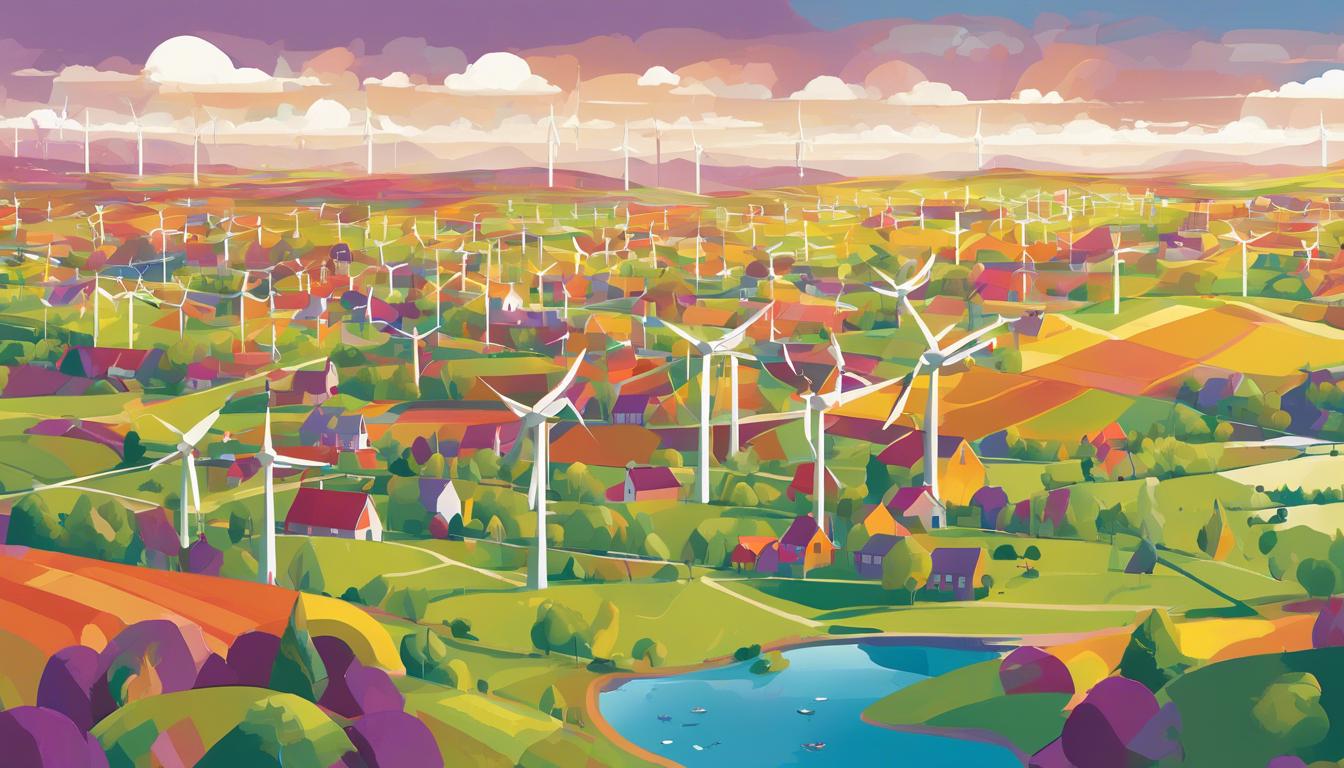A recent report reveals England has the capacity to produce 13 times more electricity from onshore wind and solar power using less than 3% of its land, amid calls for easing restrictions on wind farm developments and improving the national grid.
A new analysis conducted by Exeter University for Friends of the Earth has unveiled that England can vastly augment its renewable energy output, potentially generating 13 times more electricity than it currently does domestically, through onshore wind and solar projects, while utilizing less than 3% of its land. This finding signals a significant opportunity for renewable energy expansion without compromising food production. Despite the possibilities, development of onshore wind farms has been sluggish due to past restrictions, prompting calls from environmental campaigners for political leaders to ease these constraints, designate areas for renewable development, and enhance the power grid.
Simultaneously, the Energy and Climate Intelligence Unit (ECIU) has critiqued the UK Government’s efforts toward achieving energy security, assigning a score of three out of 10 based on commitments made two years prior. The analysis notes the UK’s ongoing reliance on expensive foreign fossil fuel imports, underscoring a lag in implementing off-shore wind energy projects, retrofitting homes with insulation, and progressing in nuclear power developments. The ECIU has urged for more robust action to advance energy independence.
In response to these critiques, the Department for Energy Security and Net Zero (DESNZ) highlighted the government’s commitment to clean energy through investments in energy efficiency, renewable projects, and support for domestic oil and gas production. The DESNZ pointed to significant growth in the onshore wind capacity and renewable energy’s contribution to the grid as evidence of the UK’s diversified and secure energy system.
These developments come amidst broader discussions on energy policy in the UK, emphasizing the importance of enhancing renewable energy capabilities and energy efficiency to reduce carbon emissions and lessen dependence on foreign fossil fuel imports. The discussions reflect varying perspectives on the best path forward to ensure a sustainable and independent energy future for the UK.













